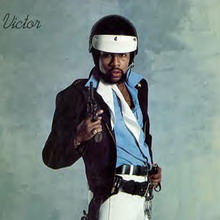| | 
Which of These Things is Not Like the Other?
1) You are always forced back on definitions. "Novel" existent is just another way of stealing the concept. How do you identify an existent as novel? Every thing you encounter is just a thing. Why would any new thing be identified as new, when it could just be subsumed under the concept thing? It is because the new thing does not fit the existing definitions. Definitions can divide up the world. Definitions are either/or. The rule is that one forms a new concept of type when one encounters two or more objects which are similar to each other but which don't fit the definition of any prior concept. You are always forced back upon the use of definitions whether you want to or not. What would the PT experimenter asking people to identify birds do if one of the experimental subjects kept insisting that Elizabeth Hurley was "quite a bird"? You can't even explain the PT at all unless you understand definitions and take them as valid. We accept ostriches, penguins and the like as birds because they do indeed fit the definition. If concepts truly were determined by "resemblance" then there would be people who insist that penguins and ostriches are not birds because they don't resemble a typical bird. The phrase "typical X" inherently depends on the epistemological priority of "X" and "x" is always some defined concept.
 2) As for your complaint, Jordan, that "yesterday" is a hard case, that is what a counterexample is! Are you going to complain that every good counter example I give is a bad one precisely because it is a good one? 2) As for your complaint, Jordan, that "yesterday" is a hard case, that is what a counterexample is! Are you going to complain that every good counter example I give is a bad one precisely because it is a good one?
Do you deny that "yesterday" is a counterexample?
3) As for this mental snapshot idea for more abstract concepts, that is special pleading. An editorial cartoon of a man with his pockets turned out is not an example of bankruptcy. Reality is not full of novel editorial cartoons. There is no image, no "core example" of bankruptcy.
 4) People can and do agree on common definitions, and if they disagree they can either stipulate two concepts, one for each definition, or they can provide counter examples. When two people disagree as to whether a chicken or a sparrow is the actual core example, how do they decide? 4) People can and do agree on common definitions, and if they disagree they can either stipulate two concepts, one for each definition, or they can provide counter examples. When two people disagree as to whether a chicken or a sparrow is the actual core example, how do they decide?
5) Let's forget about the supposedly "special" case of yesterday, let's just use words in your last post. I can give an actual definition for each of the following concepts. Can you provider an actual typical image (i.e. an immediately recognizable perceptual form, not an editorial cartoon at which one can guess conceptually) of any one of them?
error
fault
misdescribe
concept
identifying
typify
except
perhaps
because
category
later
 6) Some perceptual level concepts do have more and less typical members. Rand talks about borderline cases. But concepts have all sorts of weaker and stronger mental associations and connotations. The word bird in our mind might indeed be linked with the image of a robin, but it is also linked to sexy female and to rhymes with "word" and a whole lot of other things. None of this has anything to do with the price of tea in China. 6) Some perceptual level concepts do have more and less typical members. Rand talks about borderline cases. But concepts have all sorts of weaker and stronger mental associations and connotations. The word bird in our mind might indeed be linked with the image of a robin, but it is also linked to sexy female and to rhymes with "word" and a whole lot of other things. None of this has anything to do with the price of tea in China.
 7) As for PT criticisms of CT, do any of these actually apply to Rand's explanation of the Objectivist theory? If so, please do tell. 7) As for PT criticisms of CT, do any of these actually apply to Rand's explanation of the Objectivist theory? If so, please do tell.
8) Finally, which of the following does not belong? Wounded cop, retired policeman, motorcycle cop, military policeman, fake cop, English Bobby, undercover policeman, or policeman killed in the line of duty?
Conventional theory has no problem with this. The fake cop is not a cop, all the others are. But the police impersonator presumably fits the core example closer than any other. The undercover cop may look like an criminal. He may undertake criminal activities to hide his identity. The retired cop might look like Frasier Crane's father. The bobby might look like a fireman with his tall helmet. The fake cop will be dressed as a cop. He might make traffic stops, and handcuff people, and go to crime scenes and attend police conventions. According to P theory the police impersonator is in every way more a cop than is the undercover cop. The only difference is a mark on a personnel file and a perhaps a paycheck. The difference is the definition.
Is anyone here buying PT?

(Edited by Ted Keer on 9/26, 8:13pm)
|
|
